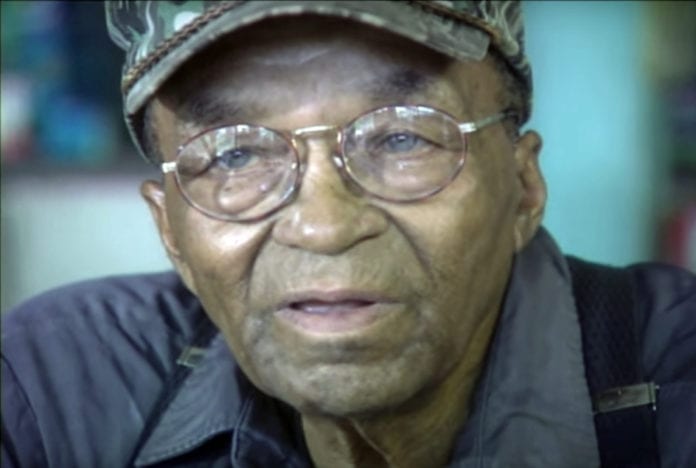John McFerren, a key civil rights warrior in Fayette County, Tenn. during the 1960s died from natural causes April 4.
His death occurred on the 52nd commemoration of the assassination of Dr. Martin Luther King Jr. in Memphis.
McFerren was born in Somerville, the Fayette County seat, on Oct. 28, 1924, to Eugene and Estella McFerren, the fifth of six children.
In the summer of 1959, McFerren decided to commit his life to equality and racial justice.
After attending the trial of Burton Dodson, an African-American accused of killing a white deputy in a 1940 shootout, McFerren started a voter registration drive.
Dodson couldn’t be judged by a jury of his peers because few blacks were on the voter rolls, and only voters could sit on a jury. Many believed he was innocent.
Although Fayette County was 70 percent African-American, a small ruling class of white landowners had controlled the majority for generations. McFerren and other activists launched a massive voter registration drive to register African Americans.
This led to organized retaliation by Fayette County whites against McFerren, his family, fellow activists and sharecroppers on the farms of white landowners.
“When I was born, the movement had already started, and both my father and mother were deeply involved,” said Daphene R. McFerren, McFerren’s daughter, and executive director of the Benjamin L. Hooks Institute for Social Change at the University of Memphis.
“That’s just how it was. We knew that we were sharing our parents with many people. As children, we didn’t feel neglected. My father was bigger than life and big enough to share.”
Whites retaliated against the movement by evicting African-American sharecroppers in December, 1960. McFerren set up army tents for the evicted families on land owned by two African-American farmers.
This “Tent City” housed these families until it was disbanded in April, 1963. But the nation and the world scrutinized Fayette County for its voter suppression and inhumane treatment of African Americans.
On November 16, 1959, the U.S. Department of Justice Civil Rights Division filed a lawsuit against the Fayette County Democratic Executive Committee to stop it from suppressing the African American vote in the primaries.
It was the first case in the nation to be filed under the 1957 Civil Rights Act. Later, the Justice Department obtained relief from the federal court to prevent white landowners from evicting African- American sharecroppers because they registered to vote.
“I believe that some people are born to see the big picture,” McFerren said. “For my father, his responsibility was far greater to just his family. It was to his people as well.
“I remember one time, my father was beaten up really badly because he wouldn’t stop his civil rights activities. My uncle took him to the hospital. When he came home, I could tell he had been beaten badly. But nothing ever stopped him.
“When others were beaten, my father would have my mother drive them to the hospital in Memphis where blacks could go. They saw the big picture. That is now my perspective. I see the big picture.”
McFerren and wife, Viola H. McFerren, opened McFerren’s Grocery and Oil Company to provide food, gasoline, and other services. It was open for more than 50 years, on Highway 195.
His brick structure was the central meeting place for student activists, civil rights workers, and labor unions. Protest marches would start there and end at the Fayette County Courthouse.
McFerren was a World War II veteran. He was preceded in death by his oldest son, John McFerren, Jr., and ex-wife, Viola.
He is survived by four children: Jacqueline McFerren, Claudia McFerren-Jones, Daphene R. McFerren and Harris N. McFerren.



